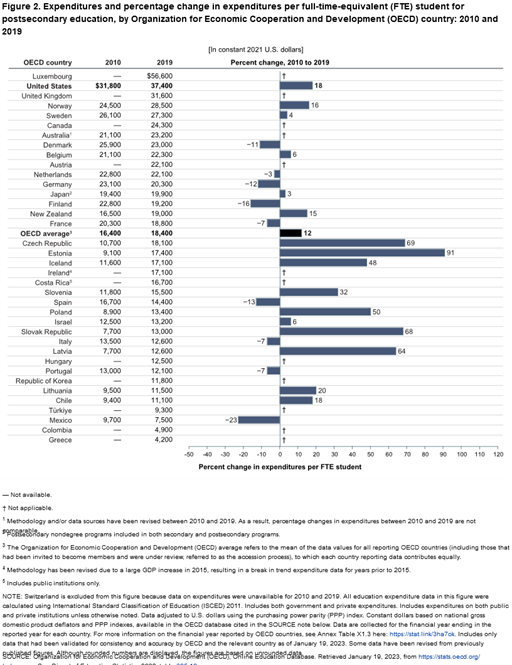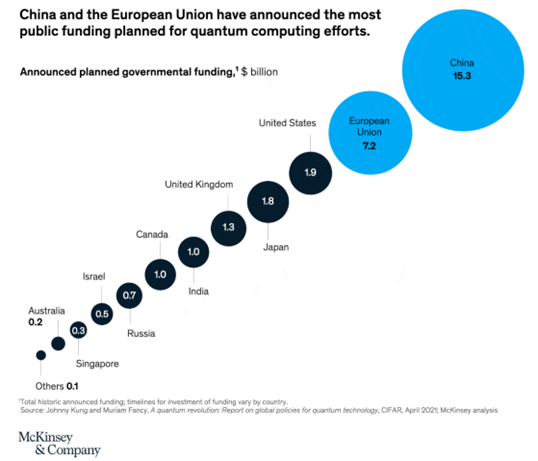This article is part of The Quantum Record’s ongoing series on Quantum Ethics, with six issues introduced in our May 2024 feature Quantum Ethics: There’s No Time Like the Present to Plan for the Human Future With Quantum Technology.
By James Myers
As we report in this edition (see Giant Steps Have Been Taken Toward Our Quantum Computing Future), Google’s announcement this month of the stunning calculation speed of its quantum chip called Willow has many beginning to think that the quantum revolution will arrive sooner than most had imagined. But when it arrives, how many people will benefit from it?
Although the United Nations General Assembly has designated 2025 as the International Year of Quantum Science and Technology, it’s a year that’s likely to go unnoticed by many around the globe who don’t have access to the technology or the education necessary for its operation.
Only a very small number of people now use quantum computers, but Google’s breakthrough and others like it could lead to a rapid increase in availability and affordability. Quantum computing is still in its early phase, with prototypes of the machines suffering limitations to their potential because of difficulties in maintaining connections among quantum circuits, a problem known as “decoherence.” Google’s Willow chip and the work of quantum computing scientists around the world may soon fully resolve the decoherence problem and trigger a rapid evolution of the technology.
While the calculation that Google’s Willow performed was of no practical use, it demonstrates the potential for tremendous speed in processing exponentially greater numbers of calculations far exceeding today’s most capable computers. A fully functional quantum computer will be very powerful, and those fortunate to have access will have a major advantage over those who don’t. The question is, who will be left out?
The high cost of developing quantum computers leaves all but a select few out of the quantum race for the time being, but that could quickly change.
A significant portion of the present cost is the shielding, including sometimes supercooling, necessary to protect the quantum circuits from the disturbances of electromagnetism, heat, and other aspects of the external environment. The cost to build a quantum computer can now amount to millions of dollars, but when the shielding expense is reduced or eliminated, the machines will become more affordable for many smaller enterprises than the few governments, research institutions, and large companies that currently have prototypes.
It’s important to note that although the machines themselves are now too difficult for all but a select few to assemble and maintain, it is possible for the public to buy time on a quantum computer. The price, however, is steep. For example, IBM charges up to $96 per minute for cloud-based use of its machines, a cost that would likely reduce from competitive pressure when quantum computers are less costly for many others to build.
The wealthy nations, which have the financial and educational resources necessary to develop and commercialize quantum computing, will have an advantage over the poorer nations.
The industrial and educational networks needed for the rapid market expansion of fully-functional quantum computers are already becoming well-established in the G7 nations (the U.S., Canada, U.K., France, Germany, Italy, and Japan) and in China. According to a 2022 report by McKinsey & Company, China had committed over $15 billion to quantum technology development, followed by the European Union at $7.2 billion and the U.S. lagging far behind in the third spot at just under $2 billion. McKinsey identified 10 countries, together with the European Union, as having made financial commitments to quantum computing.
That leaves more than 180 of the world’s nations without a financial investment in the powerful technology. Without international agreements or regulations, their only choice will be to accept the price for access and terms of use, including privacy terms, set by the fortunate countries, institutions, and companies on the other side of the digital divide.
While funding for quantum computing investment puts a significant barrier between the majority of the world and the wealthy nations, education is another factor contributing to the digital divide.
The Quantum Insider’s list of top-20 quantum research universities shows that 13 are in G7 countries, 2 are in China, and the other 5 are located in the wealthy countries Australia, Singapore, and Denmark. In the Quantum Herald’s top-ten list, the first 8 are in Canada, the U.S., Britain, and Japan. There are few institutions in the global south, which will result in an exodus of talent to the highly respected research centres in the wealthier countries.
The equitability problem is increasing, as is the response.
An educational hurdle for those entering and those already in the rapidly-evolving field of quantum computing is its scientific complexity. In a quantum computer, information is transmitted in quantum bits, called “qubits,” which are unlike the binary bits in today’s computers. The bits of today’s computers can only be in one state at a time, either “on” (“1”) or “off” (0), but qubits are in both states simultaneously. While this “superposition” of qubit states provides the quantum computer with tremendous computing power, it is not easy to establish and requires very detailed knowledge of physics, mathematics, geometry, and computer science.

Laboratory equipment at the University of Waterloo’s Institute for Quantum Computing. Located in Canada, the University of Waterloo is the top quantum computing university in the world, according to the Quantum Herald. Image: University of Waterloo.
Wealthier countries have been investing heavily in STEM (science, technology, engineering, and mathematics) education in amounts that far outpace the ability of the majority of the world’s nations that are poorer, attracting the brightest students and leaving other schools lagging further behind.
Among the World Economic Forum’s (WEF) core values for quantum computing governance principles is equitability, which it defines as follows: “Quantum computing developers and users ensure that the technology is equitable by design and that quantum computing-based technologies are fairly and evenly distributed insofar as possible. Particular consideration is given to any specific needs of vulnerable populations to ensure equitability.”
Accessibility is another of WEF’s core values. As it states,
“Quantum computing technology and knowledge are actively made widely accessible. This includes the development, deployment, and use of the technology. The aim is to cultivate a general ability among the population, societal actors, corporations and governments to understand the main principles of quantum computing, the ways in which it differs from classical computing and the potential it brings.”

Table comparing post-secondary education expenditures by country from OECD data published by the National Center for Education Statistics. The U.S. and other wealthy nations exceed the OECD average.
WEF brought many quantum stakeholders into the process of designing governance principles, including quantum computing providers like IBM, which was part of the core drafting team. IBM states, “We define Responsible Quantum Computing as quantum computing that’s aware of its effects. The research ties into a recently emerging field of Responsible Quantum research.”
A group of quantum computing and ethics experts at IBM has, as the company states, “been researching the societal implications of quantum computing, and our role as a quantum computing provider in mitigating potentially undesired consequences of the technology.” Five key areas of concern have been identified, one of which is to maintain diversity in “a global quantum computing ecosystem.” The company notes, “It is our responsibility to create an ecosystem that represents the diversity of the world at large, and be inclusive of people of all backgrounds, experiences, and abilities.”

Dr. Carolyn Ten Holter. Image: Department of Computer Science, University of Oxford.
Responsible quantum research is attracting interest.
An October 2021 paper by Carolyn Ten Holter and co-authors, Reading the road: challenges and opportunities on the path to responsible innovation in quantum computing, traces the history of the Responsible Innovation (RI) movement to developments in nanotechnology in 2010. From there, the movement expanded into other high-risk areas of geo-engineering and synthetic biology where unintended consequences could be irreversible, before it began to extend more broadly into AI and related applications.
Dr. Ten Holter and co-authors present seven Responsible Innovation recommendations in the paper, among which is a recommendation for global cooperation. They indicate “a need to participate in worldwide discussion with partners and collaborators to ensure that ethical concerns around fairness, access, and equity are not subsumed into technology arms races.”
Another recommendation is for “wide, democratic access to technologies.”
The authors cite studies that state, “Inequity of access may well be a significant impact from quantum computing.” The cited sources “argue that governments must ensure that citizens are able to access quantum computing—that it must not be restricted to deep-pocketed corporations. There are broad political challenges for quantum technologies around questions of access: if states have access but deny it to citizens, what would this mean for the balance of power between the state and the individual? If corporations can analyze big data in new ways, will individuals demand tighter controls over their personal information?”
In July, UNESCO’s World Commission on the Ethics of Scientific Knowledge and Technology published a concept note “On the ethics of quantum computing” that sets out a number of areas of ethical concern, which will be the framework for a forthcoming report on the ethics of quantum computing. UNESCO is the Educational, Scientific, and Cultural Organization of the United Nations.

The General Assembly Hall of the United Nations. The Educational, Scientific, and Cultural Organization of the UN, UNESCO will be issuing a report on the ethics of quantum computing. Image: Patrick Gruban, on Wikipedia
Reflecting on the recent past in technological history, UNESCO’s commission note states,
“At this stage in the development of quantum computing, we see the need to develop an ethical framework as states and international organizations have identified the potential of quantum technology and invested substantially, while private actors have already started to use quantum computing, and all ethical issues that have emerged over the last years of high technology use in society have re-emerged.”
In the “Opportunities, Risks, and Harms of Quantum Computing” section of its report, the commission indicates it will address access inequality as one of a number of major risks. They ask the question, “Who ensures that quantum computing resources are not primarily developed in and used in certain parts of the world—accessible only by a small number of researchers?”
Progress is being made in reducing accessibility barriers.
The mission Responsible Innovation movement is taking root in national governments. The creation of the Canadian Centre for Responsible Quantum Innovation and Technology was announced this June, as part of a collaboration of government, the academic community, and quantum technology companies. Among its goals will be “Promoting equitable access to the benefits of quantum technology, fostering inclusive development processes, and removing potential negative impacts on marginalized communities.”
Organizations like the Open Quantum Institute, hosted by CERN which operates the world’s largest particle-collider, are being formed to break down the digital divide.
 With support from global bank UBS, the Open Quantum Institute describes its role as “partnering with the industry to provide open. inclusive access to a pool of quantum computers and simulators via the cloud. The OQI thrives to ensure this pool is inclusive of all technology modalities and geographies.” Its mission is to bring together “academia, industry, diplomacy, and education to promote global and inclusive access to quantum computing and the development of applications for the benefit of humanity.”
With support from global bank UBS, the Open Quantum Institute describes its role as “partnering with the industry to provide open. inclusive access to a pool of quantum computers and simulators via the cloud. The OQI thrives to ensure this pool is inclusive of all technology modalities and geographies.” Its mission is to bring together “academia, industry, diplomacy, and education to promote global and inclusive access to quantum computing and the development of applications for the benefit of humanity.”
The OQI’s goals include integrating its mission with United Nations Sustainable Development Goals related to food, energy, water, health, and climate change and coordinating its efforts with a number of UN organizations. Twelve teams have been created to create use cases for open quantum computer access, with two such applications involving food production and water leak detection beginning this year with the help of industrial partners.
How soon will accessibility become a critical issue?
The time remaining until a fully functional quantum computer is in operation appears to be much less than the decade that until recently many had assumed. With Quantinuum’s September announcement of its intention to deliver a fault-free quantum computer by 2029 and Google’s breakthrough announced this month, the future seems much closer than it was at the beginning of this year.
Accessibility and a host of other ethical concerns with the power of quantum computing could soon become critical. To understand the consequences of delaying action, lessons can be drawn from our recent technological history and the increasingly thorny ethical issues emerging with existing and widespread technology.
Time is required to understand the issues, deliberate, and agree on principles and rules.
The necessary tasks are far more difficult and time-consuming in a polarized and politically fractured world like today’s. The rapid rate of advancement in overcoming the hurdle of the decoherence problem is a sign that the reality of quantum computing is close on the horizon, and history demonstrates how quickly technology can develop with many competitors and innovators working to devise outcomes that could never have been imagined with existing computers.
There is no time to lose. The time for focus on accessibility issues is now, before an impenetrable digital divide opens up between the fortunate few and the many who will be far less powerful.
For more on quantum ethics, visit The Quantum Record’s series:
- Who Is Pulling the Strings? Human Agency and Manipulation of Opinions on the Road to the Quantum Era
- Quantum Computing in Finance: Will Humans or Machines Have the Final Say in Setting Future Values?
- Editing Our Human Selves: Will Quantum Computing’s Potential Increase the Risks or the Benefits?
- Deepfakes: The Technology of Deception and Quantum’s Uncertain Future With the Problem
- Quantum Technologies Advance Military Capabilities, Raising Ethical Concerns
- Quantum Ethics: There’s No Time Like the Present to Plan for the Human Future with Quantum Technology
Your feedback helps us shape The Quantum Record just for you. Share your thoughts in our quick, 2-minute survey!
☞ Click here to complete our 2-minute survey







